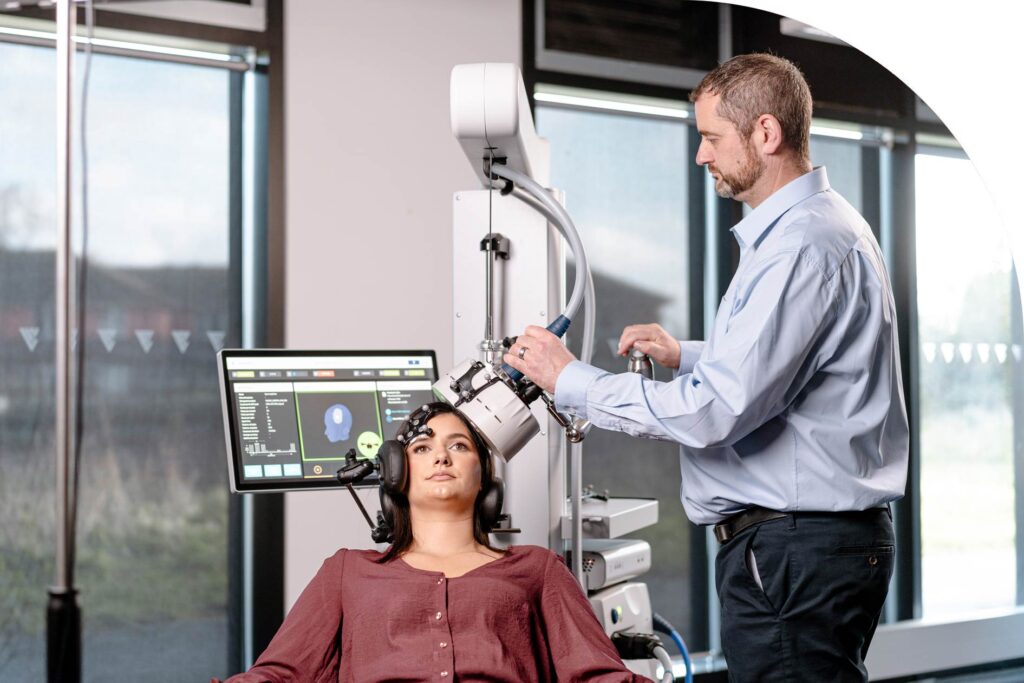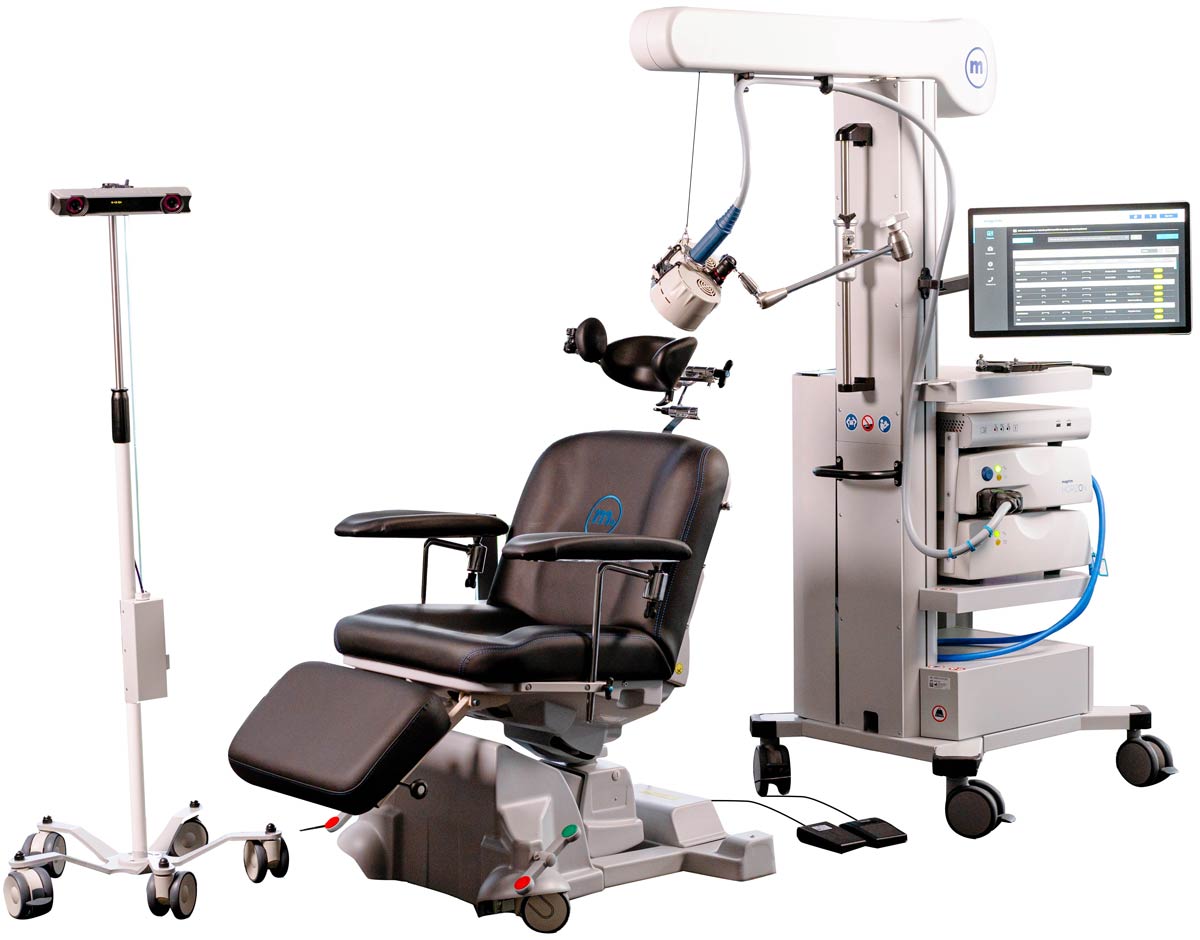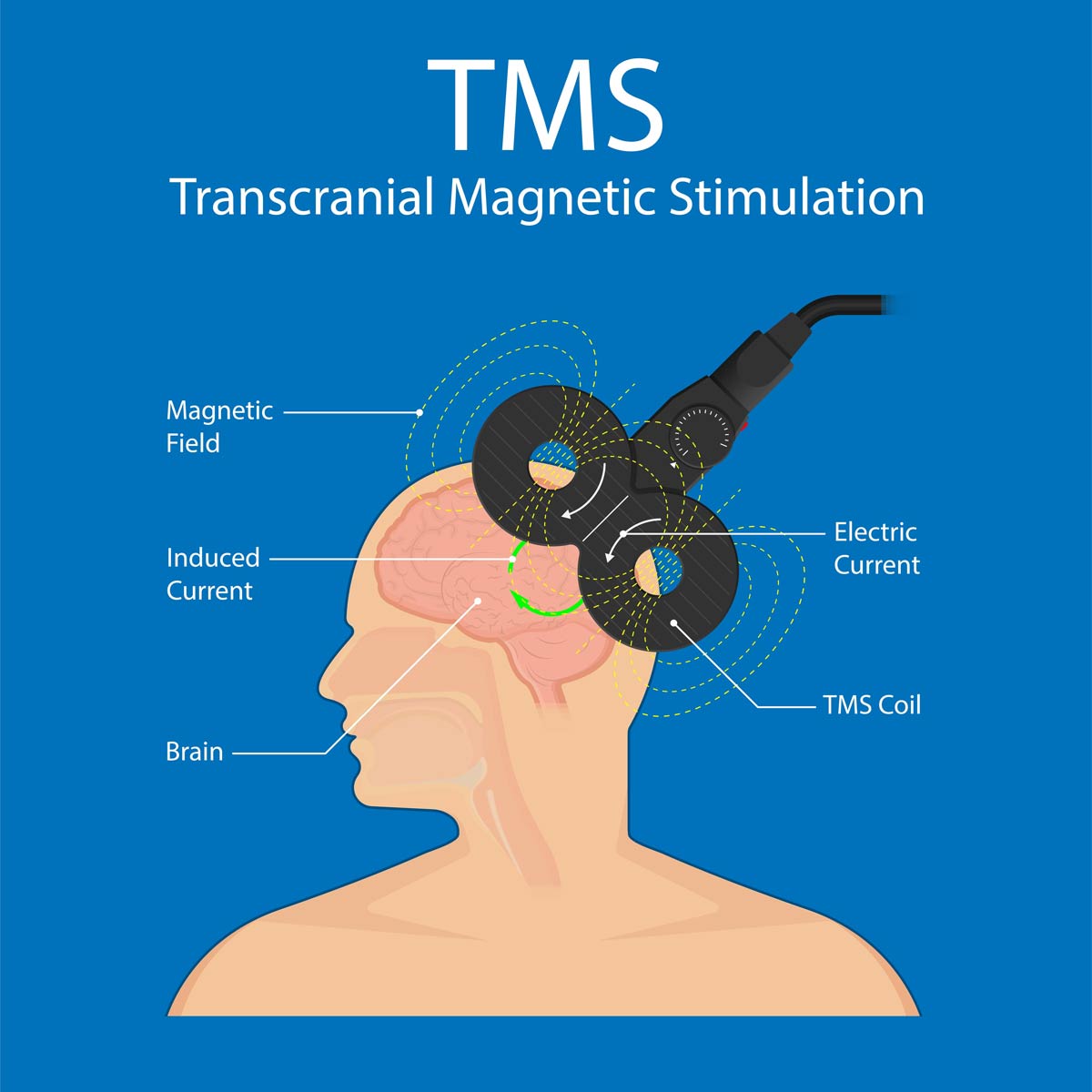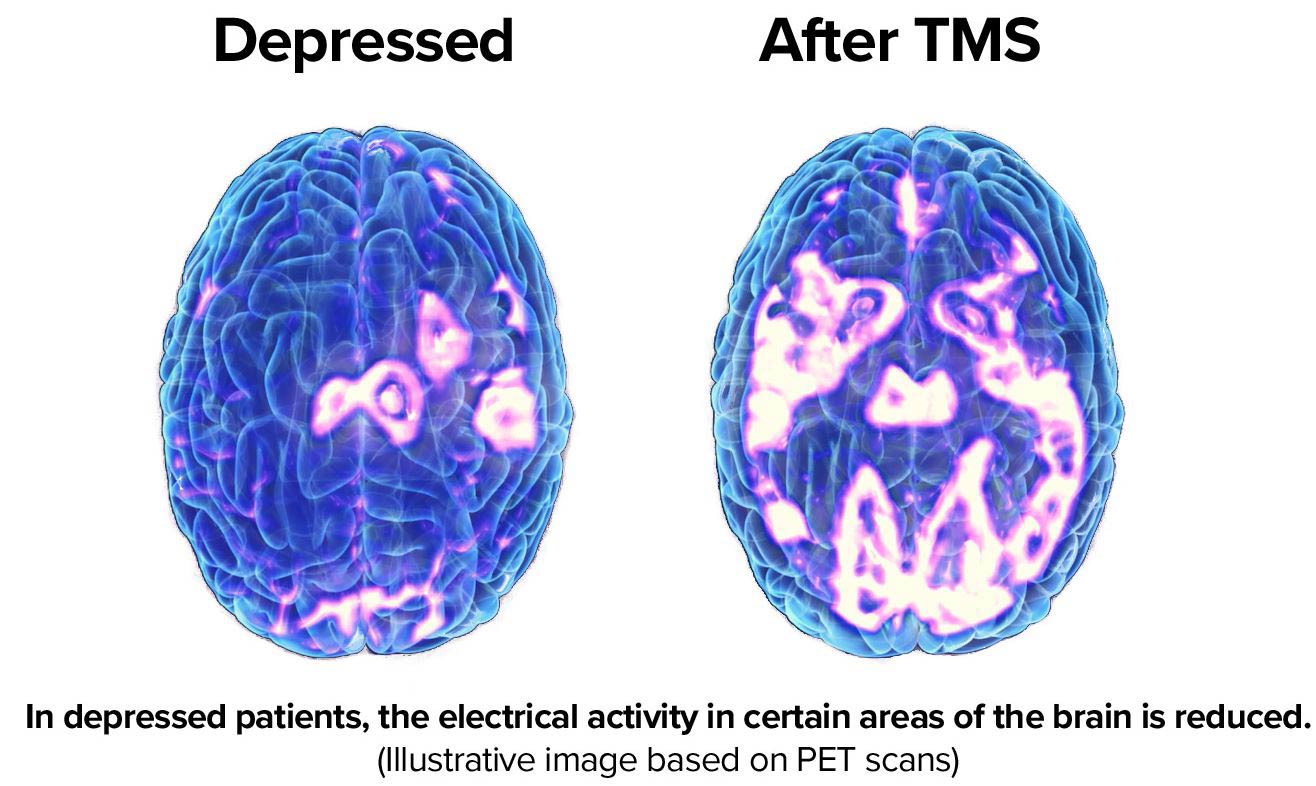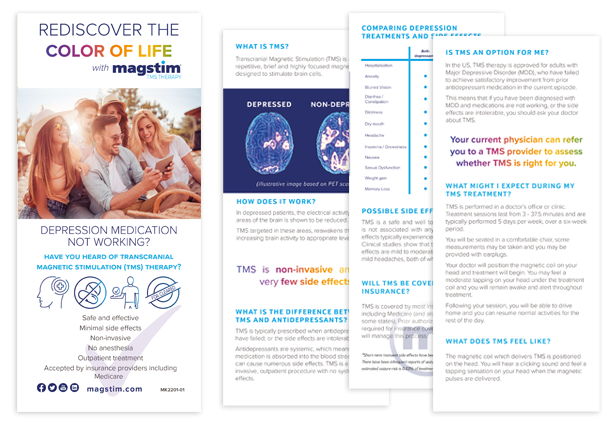Dynamic Psychiatry
Benefits of Transcranial Magnetic Stimulation (TMS):
- Noninvasive Treatment: TMS does not require surgery or implantation of electrodes, making it a less invasive option compared to other treatments like deep brain stimulation.
- Effective for Resistant Depression: It is particularly beneficial for individuals who have not responded well to traditional depression treatments such as medication and psychotherapy.
- Minimal Side Effects: Unlike medications, TMS typically has fewer side effects, with most being mild and temporary, such as scalp discomfort or headaches.
- Improved Mood and Functioning: Many patients experience significant improvements in mood, energy levels, and overall daily functioning.
- No Systemic Side Effects: Since TMS targets specific areas of the brain, it avoids systemic side effects like weight gain or gastrointestinal issues that can occur with antidepressant medications.
- Outpatient Procedure: TMS is conducted on an outpatient basis, allowing patients to resume normal activities immediately after sessions.
- Non-Pharmacological Option: It's a viable alternative for those who prefer not to take medications or who cannot take them due to contraindications or adverse reactions.
- Rapid Onset of Action: Some patients begin to notice improvement in their symptoms within the first few weeks of treatment.
- Long-lasting Effects: Research indicates that the positive effects of TMS can be long-lasting, reducing the likelihood of relapse.
- Cognitive Safety: Studies show that TMS does not impair cognitive functions; in fact, it may even improve certain cognitive domains in depressed individuals.


